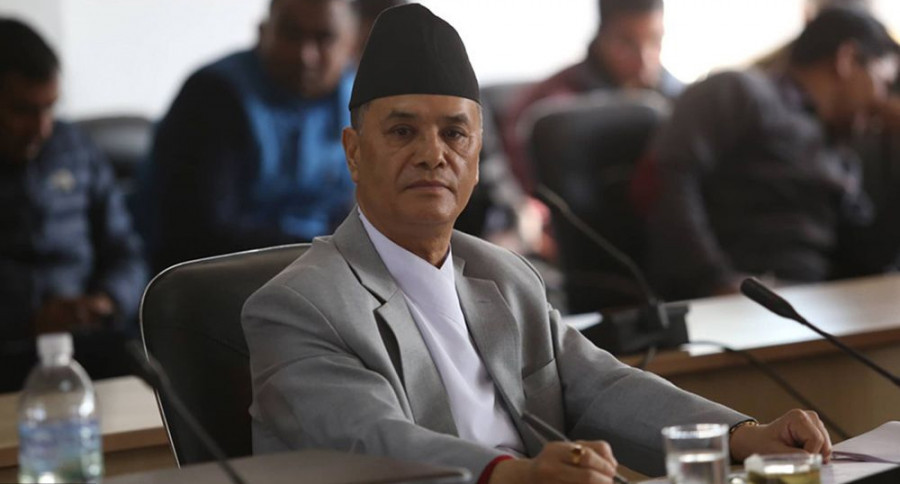National
Chief Justice Rana starts hearing on 19 petitions against House dissolution
The bench is expected to decide whether to send those to the Constitutional Bench.
Post Report
The Supreme Court on Thursday started preliminary hearing on petitions against the dissolution of the House of Representatives and rejection of the claim of Nepali Congress President Sher Bahadur Deuba for the post of prime minister.
As many as 30 petitions, including the one by the opposition alliance, have been filed at the Supreme Court, challenging Friday’s House dissolution.
A single bench of Chief Justice Cholendra Sumsher Rana is conducting the preliminary hearing on 19 petitions demanding an interim order against the dissolution. The hearing on the remaining 11 petitions that were filed at the Constitutional Bench will begin on Friday.
“Today’s preliminary hearing will decide whether to send the 19 petitions to the Constitutional Bench,” Kishor Poudel, a communication expert at the Supreme Court, told the Post. “If it does so, the Constitutional Bench will hear all the petitions.’’
The constitution envisions a five-member Constitutional Bench which is led by Chief Justice Rana. The members of the bench are selected by Rana.
President Bidya Devi Bhandari late on Friday night dissolved the Parliament on the recommendation of Prime Minister KP Sharma Oli. Earlier on Friday evening, Bhandari rejected the claims of both Oli and Deuba for the prime ministerial post, saying the “claims were insufficient.”
The President has called snap polls on November 12 and 19.
This is the second time in five months Oli and Bhandari dissolved the House.
Earlier on December 20, the President dissolved the Parliament and called snap polls on April 30 and May 10. However, two months later, the Rana-led Constitutional Bench on February 23 overturned the decision and reinstated the House.
The fresh dissolution follows a series of actions by Oli.
After rendering the House, whose first meeting was held on March 7 after it was restored by the court, dysfunctional for two months, Oli on May 10 went for a floor test. He failed. But on May 13 he was appointed prime minister again under Article 76 (3) after opposition parties failed to prove a majority to form a new government under Article 76 (2).
But instead of making a bid to secure the confidence of the House, as mandated by the constitution, Oli on May 20 prodded the President to invoke Article 76 (5), a move that constitutional experts say is unconstitutional and illegitimate.
Oli argued that there was no political ground for him to secure a vote of confidence in the House.
Bhandari gave until 5pm of May 21 to form a new government under Article 76 (5). Congress President Deuba laid claim to a new government with the signatures of 149 lawmakers. But Oli again made a claim, saying he had the backing of 153 lawmakers. He did not provide signatures of the lawmakers.
The President disqualified both the claims.
On Monday, as many as 146 members of the dissolved House jointly filed a petition arguing that the House dissolution was unconstitutional and the President bulldozed the constitution by rejecting Congress President Deuba’s claim as the prime minister.




 16.12°C Kathmandu
16.12°C Kathmandu













